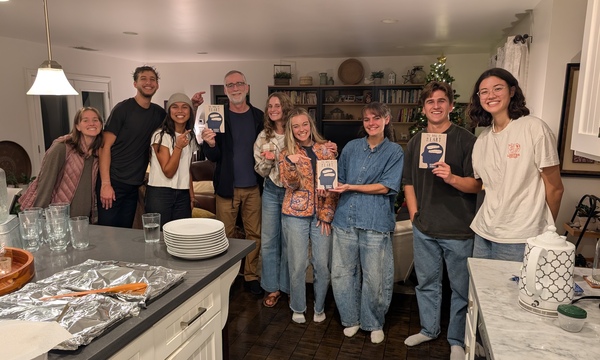It’s no secret that I love apologetics. I love to read apologetics blogs, study apologetics books, and have apologetics conversations. But there is a constant temptation I have to battle that I believe is common among many apologists: the temptation to simply study apologetics but not put it into practice.
Let me state something clearly up front so I am not misunderstood: Studying apologetics has tremendous value in its own right. After all, learning how to defend the faith can bring both clarity and confidence in God and Scripture. Nevertheless, apologetics does not primarily have an inward focus in the life of the believer. It has an outward focus aimed at graciously answering tough questions that trouble both believers and non-believers in their understanding of God and salvation (e.g., 1 Pet. 3:15; Jude 3).
So, why would someone study apologetics but never put it into use? There are probably a myriad of reasons. But I suspect one reason is that its much easier, and more comfortable, to discuss apologetic matters in the abstract. It is less risky to debate the age of the earth or presuppositionalism with a fellow believer than to discuss the evidence for the resurrection with a non-believer. After all, what is there to lose in an “in-house” discussion? As easy and tempting as this can become, Jesus took another route.
Jesus obviously knew the Scriptures well and was eager to discuss them. But he regularly puts his knowledge into practice. In John 4, for instance, Jesus meets the Samaritan woman at the well. Wanting to keep religion as an abstract matter, she raises the question as to whether one should worship in Jerusalem or Samaria. Yet Jesus declined to entertain the question merely as a theoretical exercise. He made the issue personal by discussing her five husbands and how God wants her to worship Him in spirit and truth (John 4:24).
My point is not that we should necessarily confront other people in their sin, as Jesus did in John 4. There is a time and place for that, as Scripture teaches (e.g., Matt 18:15-20). Rather, my point is that we apologists must not solely remain in the realm of speculative discussion—we need to “get in the game” and find a way to apply apologetics to life. The greater point of apologetics is not simply to learn the material for its own sake, but for the sake of changing lives. Jesus refused to keep religious issues entirely in the abstract. He made them personal. And so should we.
Pastor Dan Kimball wrote an insightful (and convicting) chapter in Apologetics for a New Generation called “A New Kind of Apologist.” He tells the story of how apologetics played a key role in his conversion to Christianity. As a new Christian, Dan was eager to share his faith, so he quickly began to immerse himself in apologetics. He read books, went to conferences, watched videos, studied debates, and more. But ironically, he noticed a disturbing trend: The more he studied apologetics the less he was really doing apologetics and evangelism. In other words, his study of apologetics actually drove him further away from the practice of it.
Fortunately Dan noticed this trend early in his journey and did a 180. As a pastor, he still studies apologetics, and writes apologetics-related books, but always with an eye for how he can apply it to life and ministry. Like Jesus in his conversation with the woman at the well, Dan refuses to keep apologetics in the theoretical realm. He wants to make it personal. And this is what I try to do as well. How about you?
You can find the original version of this article on Sean McDowell's blog.
 Biola University
Biola University



